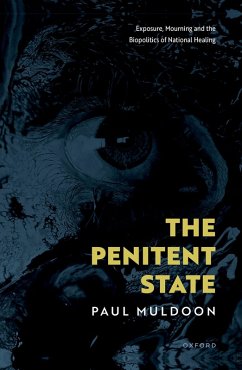This book asks a deceptively simple question: what are states actually doing when they do penance for past injustices? Why are these penitential gestures - especially the gesture of apology - becoming so ubiquitous and what implications do they carry for the way power is exercised? Drawing on the work of Schmitt, Foucault and Agamben, the book argues that there is more at stake in sovereign acts of repentance and redress than either the recognition of the victims or the legitimacy of the state. Driven, it suggests, by an interest in 'healing', such acts testify to a new biopolitical raison d'?tat in which the management of trauma emerges as a critical expression of attempts to regulate the life of the population. The Penitent State seeks to show that the key issue created by the 'age of apology' is not whether sovereign acts of repentance and redress are sincere or insincere, but whether the political measures licensed in the name of healing deserve to be regarded as either restorative or just.
Dieser Download kann aus rechtlichen Gründen nur mit Rechnungsadresse in A, B, BG, CY, CZ, D, DK, EW, E, FIN, F, GR, HR, H, IRL, I, LT, L, LR, M, NL, PL, P, R, S, SLO, SK ausgeliefert werden.


